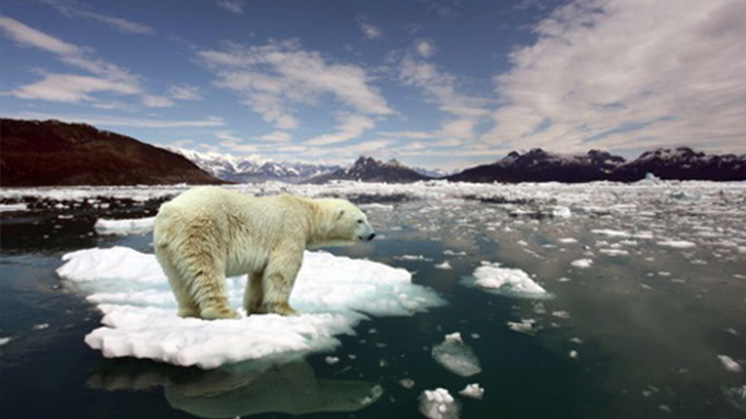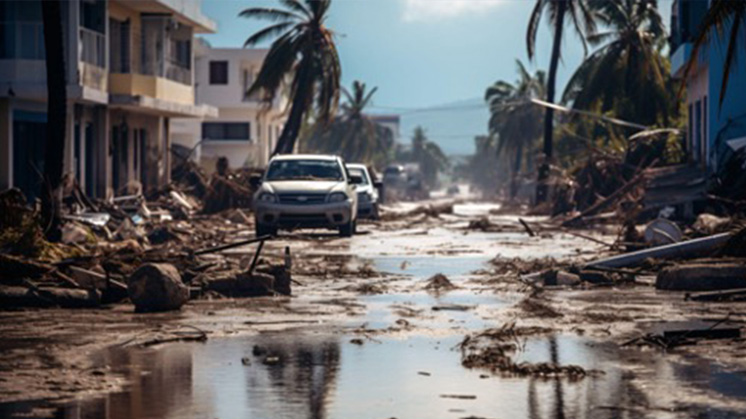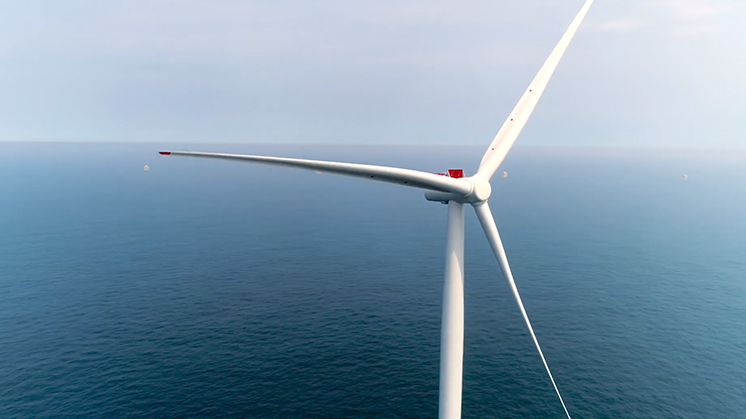International Day against Climate Change
Aware of climate change: Iberdrola's Causes, Actions and Commitments
Every 24 October, the International Day against Climate Change is celebrated, an event created with the aim of raising awareness among companies, governments and citizens of the devastating effects of global warming. On this day of reflection and global action, the Iberdrola Group reaffirms its commitment to the fight against climate change and its determination to promote specific measures to counteract one of the greatest challenges of our time.

Climate change is a global phenomenon characterised by alterations in weather patterns. With the aim of raising awareness of one of the most urgent and pressing challenges facing humanity, the International Day against Climate Change is celebrated worldwide on 24 October, a date designed to reflect on what climate change is and how our individual and collective actions can make a difference in this cause.
At the Iberdrola Group, we join this celebration as true leaders in the fight against climate change. Our involvement with this international day is mainly reflected in our commitment to a decarbonised and sustainable energy model, which is embodied in our Climate Action Plan emissions neutrality. But why is it so important to fight the climate crisis and actively participate in the celebration of this day?
Why is the International Day against Climate Change celebrated?
International Climate Change Day, celebrated around the world on 24 October, is a unified, global response to the challenge of climate change. This date originates from the United Nations Framework Convention on Climate Change (UNFCCC) and is celebrated to raise awareness of the urgent need to address this phenomenon. Its significance goes beyond a simple calendar event, being a warning that climate change is a real threat that requires urgent global action.
According to the UN, it is scientifically proven that human action is solely responsible for global warming over the last 200 years, causing devastating effects that are increasing every year. The organisation estimates that approximately 3.6 billion people live in contexts that make them highly vulnerable to the impacts of climate change. From extreme weather events to biodiversity loss and resource scarcity, its consequences are felt in different parts of the world.
International Climate Change Day therefore reminds us of our shared responsibility to take concrete action to mitigate and adapt to these changes. Aimed at governments, businesses and citizens, it is a reminder that, if we act collectively and with commitment, we can begin to turn the climate situation around to build a more sustainable future for generations to come.




Main causes of climate change
The impact of climate change on the economy and society is caused by a series of human activities that release greenhouse gases into the atmosphere, mainly carbon dioxide and methane as a result of burning fossil fuels. These emissions of polluting gases, which have been increasing over the years since the age of industrialisation, are the key factor in the rise in global temperature and its consequent effects that plague some of the countries most vulnerable to climate change. Understanding the main causes of this phenomenon is essential to effectively address it.

Decarbonisation
Regulatory principles and actions relating to energy decarbonisation.

Sea level rise
Does sea level rise really endanger our future?

How to fight against global warming
Towards a 1.5º C scenario with robust policies.

The sixth extinction
Climate change is accelerating the sixth extinction.
Iberdrola's commitment: Strategies to mitigate climate change
We all have an important role to play in the fight against climate change. Iberdrola, aligned with the European objectives, knows that the electricity sector assumes a significant responsibility to mitigate the effects of the climate crisis and to be a decisive driver for compliance with international commitments. For this reason, for more than 20 years the company has been setting a series of objectives to achieve a global economy with low CO₂ emissions that achieves climate neutrality through the energy transition
This involves adopting measures to decarbonise the electricity sector and electrify the economy in order to reduce greenhouse gas emissions into the atmosphere. Smart grids play a key role in this process as a means of integrating and expanding the use of clean energy, facilitating the connection of new renewable installations, optimising demand management and improving system efficiency. At Iberdrola, we are also promoting the digitalisation and modernisation of these infrastructures to make them more flexible and resilient, while promoting efficient storage solutions. The electrification strategy aims to promote the use of electricity as an energy source in sectors that traditionally depend on fossil fuels, such as transport, heating and industry.
To make progress with this goal and build a low-carbon future, it adopts a series of measures such as the implementation of the Iberdrola's Climate Action Plan, which sets out an ambitious roadmap aimed at achieving scope 1 carbon equivalent neutrality by 2030 and net zero CO₂ equivalent emissions across all scopes before 2040; joining The Climate Group's EV100 initiative to electrify our entire fleet of vehicles in Spain and the United Kingdom; planting 20 million trees by 2030; and closing all coal-fired plants.

UN legal instruments in the fight against climate change
Over the past decades, the international community has worked to develop legal instruments to address the challenge of climate change. One of the fundamental pillars in this fight is the United Nations Framework Convention on Climate Change (UNFCCC), a conference that annually brings together almost two hundred countries that establishes basic obligations to curb the climate crisis
This meeting, known as COP, the acronym for Conference of the Parties, originated in 1992 during the Earth Summit in Rio de Janeiro, when member states identified the need to create a new conference to address the problem of climate change. Since then, COPs have gained prominence as meeting points for negotiating and shaping the climate agenda of nations, reaching significant international agreements that set targets in response to climate change
One of the most notable milestones in history was the adoption of the Kyoto Protocol in 1997, which represents the first international commitment to limit greenhouse gas emissions. In the document, signatory countries pledged to reduce their pollutant emissions by at least 5 % compared to 1990 levels in the five-year period 2008-2012. Although it faced challenges in its implementation and some countries chose not to ratify it, this agreement laid the groundwork for future climate negotiations
Years later, in 2015, the Paris Agreement was adopted and signed by virtually all countries in the world, marking a crucial step in the fight against climate change. This agreement sets ambitious targets to limit the global temperature increase to below 2°C compared to the pre-industrial era, with efforts to limit it to 1.5°C. It also encourages international cooperation and mobilises financial resources to support developing countries in their climate efforts.
Iberdrola's commitment to the summits organised by the United Nations is reflected in its active participation in these meetings and in the adoption of an energy model aligned with the main international agreements. At the 2025 Climate Summit (COP30), held in Belém (Brazil) between 10 and 21 November 2025, Iberdrola participated in various meetings, forums and gatherings with leaders from governments and non-governmental organisations (NGOs) to place electrification, electricity networks, renewable energies and storage at the centre of the international debate.










